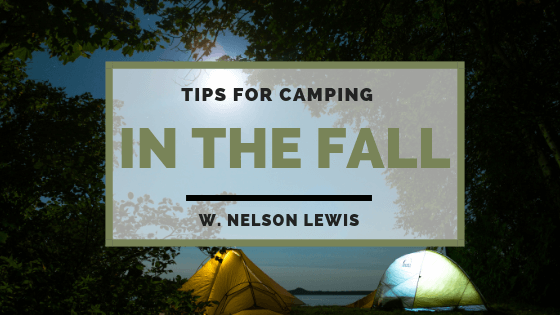Changing leaves, a crackling fire and a slight nip to the air, fall is truly one of the best times of year. It is one of the reasons fall camping trips are so popular. Getting outdoors and sleeping under the stars isn’t just reserved for the summer. If you plan correctly, your next fall camping adventure will be one to remember.
Research your destination
To make the most of your fall adventure, research and read everything you can find about your destination. Looking at the weather, what campsites will be available, what hiking trails are accessible near your site, and what notable activities and sites are in the area.
Check your gear before you head out
A great trip can be ruined by something as simple as a hole in the nylon of your tent. Setting up your tent in the backyard before heading out will allow you to make sure your tent is free from tears or holes and all the zippers are in working order.
Place a tarp under your tent
Placing a tarp under your tent will help keep moisture out and help with insulating your accommodations. The tarp should be big enough to cover the outer surface of the tent. Any part of the tarp that is exposed to open air can collect moisture and condensation which can end up in your tent.
Bring a fire starter
Fall is known for its moist weather so starting a fire might not be the easiest part of your trip. If you plan on using materials found around your campsite, they might be a little damp and the fire starter will help get a flame started.
Bring the right clothes
Layering your clothing is one of the only ways to survive a fall camping trip. The weather can go from super cold in the morning to hot by mid-afternoon, especially if you are filling your day with activities. You will be much more comfortable if you can add or remove layers as needed throughout your day. The most important clothing to pack include:
- Moisture wicking thermal underwear
- Thicker sweater or jacket for added warmth
- Rain jacket and waterproof shoes or boots
- Hat to keep you warm at night or early in the morning
- Gloves or mittens
- Extra pair of shoes and extra socks
Be aware of the wildlife
While wildlife should always be a concern while camping, animals are more active in the autumn months. Their food supply starts to dwindle which makes them more determined to find their next meal. Bringing the right airtight containers to store your food will help to detract them from your campsite.
